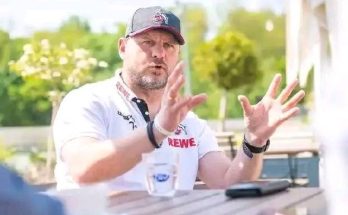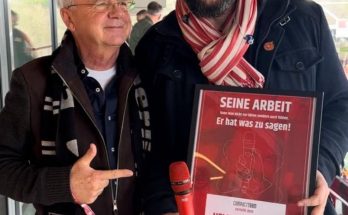It would be a remarkable moment for music history: Sade Adu—whose voice has long been synonymous with depth, elegance, and emotional restraint—landing on the Oscars’ “Best Original Song” shortlist, reclaiming the world stage in a triumphant return. That scenario recalls what actually transpired in 2018–2019, when Sade’s song “The Big Unknown” was shortlisted for the 2019 Academy Award for Best Original Song.
Let me take you through the emotional texture of that moment, situate what it meant in the arc of her career, and reflect on why it still resonates as an inspiration whenever an iconic artist reemerges into the spotlight.
Sade’s path to this recognition was not linear or predictable. After years without releasing new music, she seemed to recede behind the aura of her earlier work. Her voice had become more myth than fixture—adored, but quiet. To understand the weight of “The Big Unknown” making the shortlist, one must first trace how Sade arrived at that moment.
Helen Folasade Adu—Sade—had already etched an indelible mark on global music culture. With her distinctive tone, minimal yet rich instrumentation, and emotional subtlety, she and her band carved a niche in soul, jazz, and adult contemporary realms. But for many years before 2018, she refrained from releasing new songs. Her last major album, Soldier of Love, had come out in 2010, and thereafter new material was scarce.
In 2018, she turned up in two places where one might least expect: film soundtracks. First, she contributed “Flower of the Universe” to Disney’s A Wrinkle in Time. That was her first new song in about eight years.Then later that year came “The Big Unknown,” composed for the Steve McQueen film Widows.
“The Big Unknown” is a song of controlled, emotional weight. Its instrumentation is measured; its vocal delivery restrained but full of internal movement. It carries the melancholic sense of loss, but also the tether of resilience. And it was precisely this melding—of feeling held in check, of emotion rendered without excess—that made the piece feel inescapably Sade. Critics noted that the song “bottles a sadness that is both overwhelming and resolute) and that the “minor-key ballad … lands some heavy emotional blows despite its impeccably tasteful lite production.”
When the Oscars shortlist was announced in December 2018, “The Big Unknown” appeared among fifteen songs in contention for Best Original Song.It stood alongside tracks by major contemporary names—Kendrick Lamar & SZA’s “All the Stars,” Lady Gaga & Bradley Cooper’s “Shallow,” Sampha’s “Treasure,” and more.
By the time the actual Oscar nominations were revealed in January, “The Big Unknown” did not make the final cutBut earning a place on the shortlist in itself was a signal: Sade, long perceived to be in retreat, was still capable of speaking to the cinematic moment, still capable of contributing to a global cultural conversation on the level of Hollywood’s most visible stage.
This achievement mattered more than just the recognition: it felt like a reclamation of voice, of presence, of creative authority. For many artists, fading into silence is a slow diminishing. But for Sade, the silence was a kind of reservoir. When she reappears, she does so not to stir noise but to drop something quiet, precise, emotionally resonant.
In the narrative of comebacks, this is a different template. It’s not thunderous declarations. It’s not chases for trending relevance. It’s a reminder that influence can lie in subtler gestures—that when a voice like hers reemerges, it carries the weight of absence, of memory, of longing.
To revisit that moment is to sense a few layers of meaning:
First: humility of craft. She didn’t chase an Oscar. She didn’t throw everything into the mix to force attention. The song was written to serve a film—loss, survival, grief—and she entrusted it to that narrative. The shortlist nod was recognition of alignment between film and voice.
Second: the power of scarcity. In an age of nonstop output, her silence made each note more precious. Her return, therefore, felt like the opening of a door long closed. It reminded listeners—across generations—that silence is not absence necessarily, but potential. Her reemergence in that moment was richer for the time she had receded.
Third: relevance across time. The shortlist placed her in dialogue with a younger generation of artists working in hip hop, pop, film, and more. It wasn’t nostalgia or legacy alone; she was on the same list as the vanguard. In that space, she didn’t feel out of place. Her voice still belonged.
Fourth: emotional consistency. She did not abandon her aesthetic. There was no shift toward chasing trends. The song did not sound like a very contemporary concession. It sounded like Sade — as if she reached into time, into her established sensibility, and offered something new, but recognizable. That balance is hard to sustain.
Now fast forward in imaginative possibility: to envision Sade Adu landing on a future Oscars shortlist again—this time, say, in 2026 or beyond—is to see the same arc extend further. It would be not merely a comeback, but a further imprint on the cultural moment. For fans, it would evoke the thrill of rediscovery. For skeptics, it would defy expectations. For the industry, it would be proof that a voice defined by restraint can still command attention when she chooses to speak.
The significance would go beyond awards. It would ripple through how we think of artistic life cycles. How many artists feel pressured to constantly produce to maintain relevance? Sade’s path suggests an alternate path: that absence can be part of legacy, that returning on one’s own terms can carry more weight than constant presence. When she lands on the shortlist again, it would validate that long-term vision.
Beyond her own arc, such a moment would also be symbolically powerful for African and diasporic voices in global forums. Sade is Nigerian-British; her presence on that shortlist signals an invitation to audiences who seldom see themselves represented at that level of cinematic-musical recognition. That kind of recognition helps expand what we imagine is possible—not just for one artist, but for a generation.
Of course, there is drama in the uncertainty: being shortlisted but not ultimately nominated, or nominated but not winning, still feels like both victory and suspense. The shortlist is part of a ladder; the ascent may not reach the top. And yet, the moment of being shortlisted is itself a declaration—a signal that one’s work remains alive in the conversation.
In retelling Sade’s shortlist moment, one also senses how the emotional stakes were personal. A woman who had held back from the public glare for years, returning to contribute music to human stories, collaborating with filmmakers—those are moves of trust. There is risk in reemergence: people may expect too much, may compare to what once was, may dismiss the new. But she did it anyway. And the shortlist was affirmation that the risk carried reward.
So: if Sade Adu lands on the Oscars’ Best Original Song shortlist again, it is not a surprise so much as a recognition—that she still matters, that her voice still holds sway, that she continues to be in dialogue with time, with music, with film, with audiences. It is a triumphant return not in boast, but in quiet presence, commanding attention by virtue of what she has earned, what she withheld, and what she now offers.
When I reflect on that 2019 shortlist moment and imagine it repeating, I feel a certain thrill—not just admiration for Sade, but a hope. A hope that artistry can evolve on its own timeline. A hope that voices cherished for decades can still reenter the room and be heard anew. A hope that silence, when broken, can resound stronger than noise. If you like, I can write a fully imagined narrative—scene by scene—of Sade returning to the Oscars shortlist in 2026, how she might feel, how the world might respond. Would you like me to sketch that?



